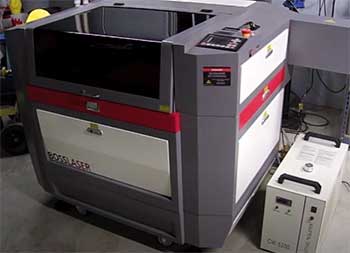When it comes to choosing the right bottled water, the options can be overwhelming. I’ve tried numerous brands, each promising purity and taste. However, Waiākea water has genuinely stood out for me.
From its sustainable packaging to its naturally alkaline properties, there are compelling reasons why you should consider making Waiākea your go-to water brand. Let me take you through my experience, the pros and cons, and how it stacks up against other brands in the market.
My Experience Drinking Waiākea Water
From the moment I first opened a bottle of Waiākea water, I knew I was in for something special. The first sip was incredibly refreshing, with a crispness that immediately stood out from other bottled waters I’ve tried.
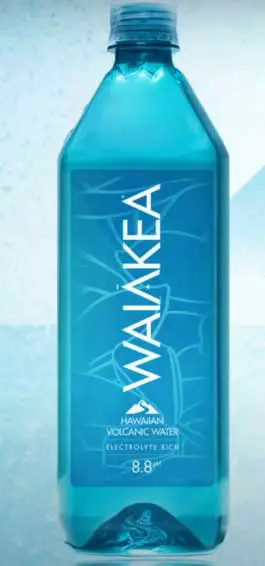
There’s a certain smoothness to Waiākea that makes it feel both light and satisfying, perfect for quenching my thirst after a long day or during a rigorous workout.
One of the aspects that truly impressed me was the subtle mineral taste.
Unlike some waters that can have an overpowering mineral flavor, Waiākea strikes a perfect balance.
The presence of calcium and magnesium not only enhances the taste but also adds a slight richness that elevates the overall drinking experience. It’s clear that a lot of thought has gone into achieving this unique flavor profile.
Another standout feature for me is the naturally alkaline nature of Waiākea water.
I’ve noticed that it feels gentler on my stomach compared to more acidic waters, which is a significant plus for someone like me who occasionally deals with acid reflux.
The pH balance seems to make a noticeable difference in how hydrated and refreshed I feel throughout the day.
The packaging also deserves praise.
Knowing that the bottles are made from 50% recycled plastic and are fully recyclable makes each purchase feel like a responsible choice for the environment.
It’s reassuring to know that enjoying a premium water experience doesn’t come at the expense of our planet.
However, my experience hasn’t been without its hiccups. There have been a few instances where the water didn’t meet my expectations, tasting a bit off or having an unusual scent. While these were rare, they did make me cautious and prompted me to ensure I was buying from reputable sources.
Overall, though, the positives far outweigh the negatives, making Waiākea a staple in my daily hydration routine.
The Pros of Waiākea Water
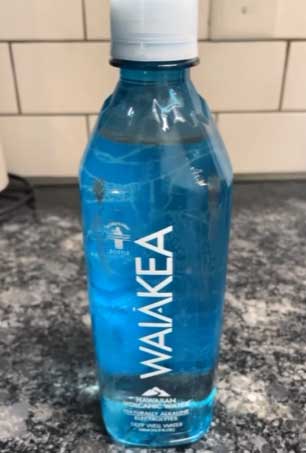
- Exceptional Taste: One of the most significant advantages of Waiākea water is its taste. Many users, including myself, have noted that it tastes clean and fresh, much like water is supposed to. The naturally alkaline nature helps neutralize stomach acid, making it a great choice for those with acid reflux or sensitive stomachs. The presence of natural electrolytes also means it’s refreshing without any sugary additives, which is a huge plus for health-conscious individuals.
- Sustainable Packaging: Waiākea is committed to sustainability. Their bottles are made from 50% recycled plastic, excluding the label and cap, and are fully recyclable. They use high-grade 100% rPET, or post-consumer recycled PET, which significantly reduces energy usage by 85%, water usage by 99%, and carbon emissions by 79% compared to regular virgin plastic bottles. This commitment to the environment makes choosing Waiākea a responsible decision.
- Alkaline Properties: With a pH range of 7.6 to 8.2, Waiākea water is naturally alkaline. Alkaline water can help balance the body’s pH levels, potentially reducing acidity and promoting overall health. The minerals present in Waiākea water, such as calcium and magnesium, also contribute to better bone health and muscle function.
- Social Impact: Waiākea is more than just a water brand; it’s a brand with a mission. For every case sold, they provide a one-month supply of clean water to those in need, particularly in Malawi, Africa. Since 2012, they’ve impacted over a million lives, which adds a layer of social responsibility to every purchase.
- High-Quality Filtration: The volcanic filtration process ensures that the water is exceptionally pure. The water is slowly filtered through the sun-drenched hills of Tuscany, capturing over 200 inches of water each year for a daily sustainable yield of 393 million gallons. This meticulous filtration process guarantees that every sip of Waiākea water is of the highest quality.
The Cons of Waiākea Water
- Price Point: One of the main drawbacks I’ve encountered with Waiākea water is its price. It tends to be more expensive than other bottled water brands on the market. While the quality and sustainability are top-notch, the higher cost can be a barrier for some consumers. This was echoed in a review where a user mentioned that the price was too high for their wallet, making it a one-time purchase unless a more affordable option becomes available.
- Availability Issues: Another downside is the limited availability. Waiākea water isn’t as widely available as some of the more mainstream brands. This can make it challenging to find in local stores, leading to potential frustration for regular users. One reviewer mentioned difficulty in purchasing the water at certain locations without resorting to overpriced stores.
- Inconsistent Quality: While many users rave about the taste and quality, there have been reports of inconsistency. Some customers have experienced bottles that taste or smell off, likening it to contaminated water. This inconsistency can be concerning, especially for those who rely on Waiākea for its purity and health benefits. It’s important to ensure that you’re purchasing from reputable sources to minimize the risk of receiving a compromised bottle.
Tips For Your Waiākea Water
To get the most out of your Waiākea water, proper maintenance and storage are essential. Here are some tips based on my experience:
- Store in a Cool, Dark Place: Keep your bottles away from direct sunlight and heat sources. Exposure to high temperatures can degrade the plastic and potentially affect the water’s taste and quality. A cool, dark pantry or a refrigerator is ideal for storing your bottles.
- Recycle Responsibly: Waiākea’s commitment to sustainability means you should also take responsibility for recycling their bottles. Ensure that you separate the bottle, label, and cap if necessary, and dispose of them according to your local recycling guidelines. This helps maintain the environmental benefits that Waiākea offers.
- Check for Seal Integrity: Before purchasing, always check that the bottle seal is intact. An unopened bottle should have a secure seal to prevent contamination. If you notice any tampering or damage to the seal, it’s best to avoid that bottle.
- Rotate Your Stock: If you buy in bulk, practice first-in, first-out. Use the older bottles first to ensure that you’re always drinking the freshest water. This also helps prevent bottles from sitting around for too long, which can affect the taste and quality.
- Maintain Proper Hydration Habits: While Waiākea water is beneficial, it’s important to maintain a balanced hydration routine. Drink plenty of water throughout the day, and consider integrating other healthy beverages into your diet to stay well-hydrated.
Comparing Waiākea With Other Brands
When selecting bottled water, it’s essential to understand how different brands stack up against each other. Let’s compare Waiākea with Acqua Panna, Deer Park Spring Water, and Mountain Valley Spring Water to see how it measures in terms of taste, sustainability, mineral content, and overall value.
- Waiākea Vs. Acqua Panna
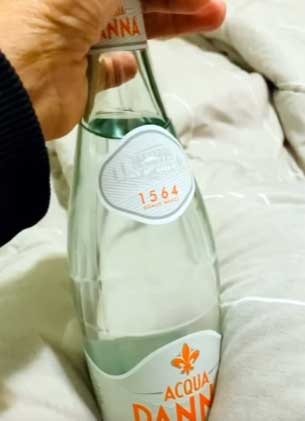
Both Waiākea and Acqua Panna hail from Italy’s Tuscany region, renowned for its pristine water sources.
Acqua Panna is celebrated for its smooth taste and balanced mineral composition, making it a favorite for pairing with fine dining and wines.
However, Waiākea takes a step further with its volcanic filtration process.
This method not only ensures exceptional purity but also enhances the water’s natural alkalinity, providing additional health benefits.
In terms of sustainability, Waiākea shines with its commitment to using 50% recycled plastic bottles and achieving a fully recyclable product.
Acqua Panna also emphasizes eco-friendly practices, but Waiākea’s higher percentage of recycled materials and carbon-neutral certification give it an edge for environmentally conscious consumers.
If you’re looking for a water brand that combines exquisite taste with robust sustainability efforts, Waiākea is a compelling choice.
- Waiākea Vs. Deer Park Spring Water

Deer Park Spring Water is another prominent player in the bottled water market, known for its affordability and widespread availability. Sourced from multiple locations across the United States, Deer Park offers consistent quality and a clean taste that appeals to a broad audience.
However, when compared to Waiākea, there are notable differences in filtration and mineral content.
Waiākea’s volcanic filtration process ensures a higher level of purity and a unique mineral balance that Deer Park doesn’t specifically highlight. Additionally, Waiākea’s naturally alkaline pH of 7.6 to 8.2 provides benefits that Deer Park’s water lacks, such as better hydration and potential acid reflux relief.
On the sustainability front, Deer Park uses plastic bottles, but Waiākea’s use of 50% recycled materials and commitment to reducing carbon emissions makes it a more eco-friendly option.
If you prioritize advanced filtration and alkalinity alongside sustainability, Waiākea stands out compared to Deer Park’s more traditional approach.
- Waiākea Vs. Mountain Valley Spring Water
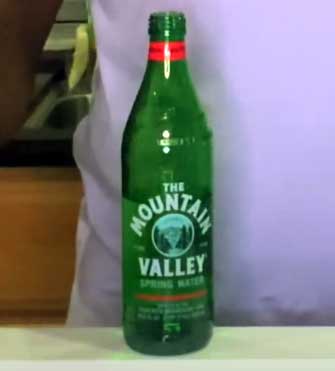
Mountain Valley Spring Water is often praised for its rich mineral content and crisp taste, sourced from the Ouachita Mountains in Arkansas.
It boasts a long history and a loyal customer base that appreciates its natural purity and distinctive flavor.
However, Waiākea differentiates itself through its unique volcanic filtration process and higher alkalinity levels.
While Mountain Valley offers a balanced mineral profile, Waiākea enhances its water with additional minerals like silica and magnesium, contributing to its smooth and refreshing taste.
Moreover, Waiākea’s focus on sustainability is more pronounced.
Mountain Valley uses glass and plastic bottles, but Waiākea’s 50% recycled plastic bottles and carbon-neutral operations provide a stronger environmental commitment.
In terms of social impact, both brands give back to communities, but Waiākea’s program of donating clean water to those in need with every case sold adds a meaningful layer to your purchase.
If you’re seeking a premium water experience with a robust sustainability and social responsibility framework, Waiākea offers distinct advantages over Mountain Valley.
Frequently Asked Questions (FAQ)
Absolutely! Waiākea water is naturally alkaline with a pH range of 7.6 to 8.2, which can help balance your body’s pH levels. It contains essential electrolytes and minerals like silica, calcium, potassium, magnesium, and sodium, which are beneficial for overall health. The absence of sugary additives makes it a great choice for those looking to stay hydrated in a healthy way.
As of my knowledge cutoff in April 2023, there haven’t been any widespread recalls of Waiākea water. However, like any bottled water brand, it’s essential to stay informed through official channels or the company’s website for any updates or recalls that may occur after this date.
Waiākea water undergoes a rigorous volcanic filtration process, descending through 14,000 feet of porous lava rock. This natural filtration ensures that the water is exceptionally pure, free from contaminants, and rich in beneficial minerals. The meticulous sourcing and filtration process make Waiākea one of the purest bottled water options available.
The exceptional taste of Waiākea water is due to its unique mineral balance and natural alkalinity. The volcanic filtration process enriches the water with essential minerals like calcium and magnesium, enhancing its flavor profile. Additionally, the clean and fresh taste is a result of the meticulous purification process, ensuring that each sip is as pure and refreshing as the last.
Final Thoughts
Choosing the right bottled water can significantly impact your health and the environment. Waiākea water offers a compelling combination of purity, taste, and sustainability.
While it may come at a higher price point and limited availability, the benefits it provides make it a worthwhile investment for those who prioritize quality and environmental responsibility.
Whether you’re a health enthusiast or someone looking to make a positive impact on the planet, Waiākea water is a choice you can feel good about.
